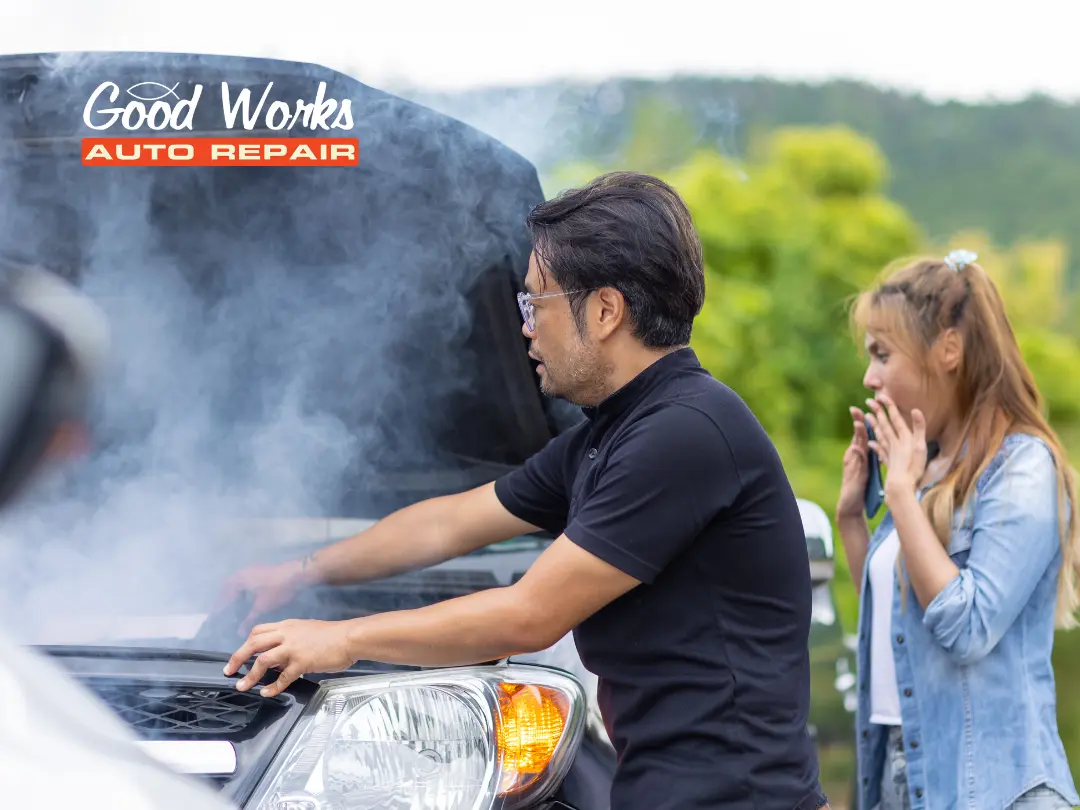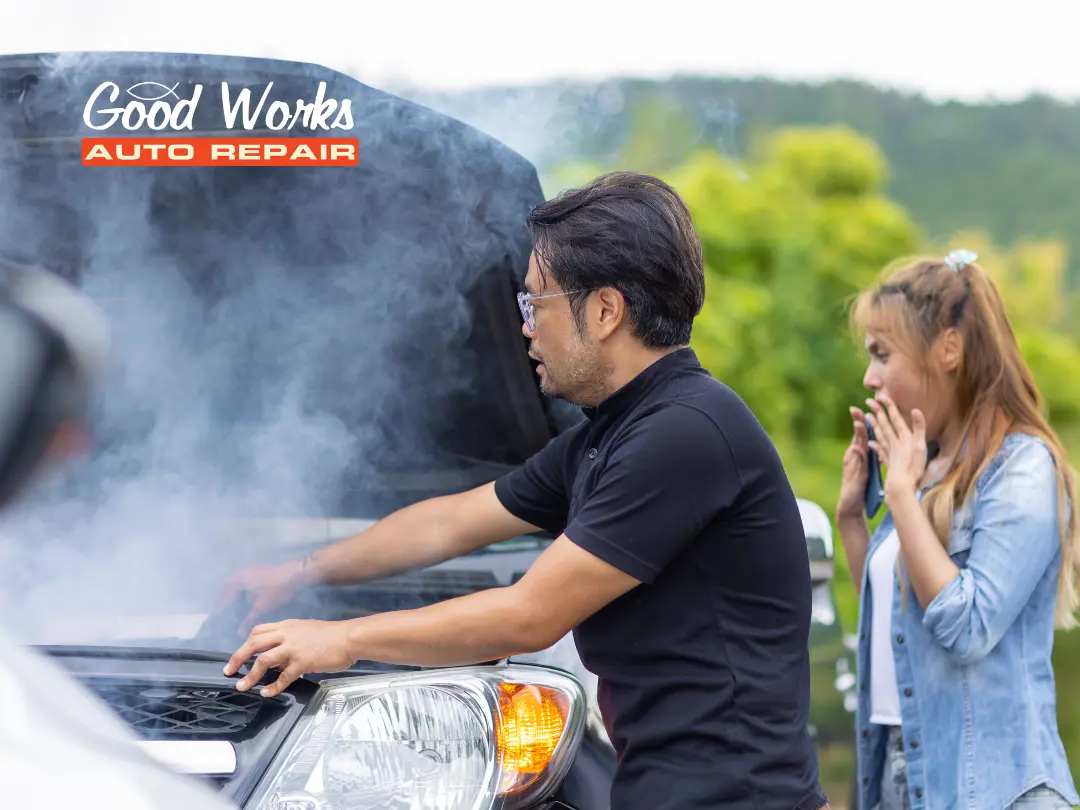
You’re driving and out of nowhere you see smoke and steam coming out from under the hood. When your engine overheats, it can be a stressful and scary situation, especially if you’re in the middle of nowhere. Unfortunately, even with routine maintenance services, engines sometimes overheat and can cause damage. This is especially true when proper precautions and appropriate actions are not taken. Nothing like a hot engine to ruin your road trip and your bank balance. Read on to learn why your engine might overheat and what to do if you’re out and about when it happens.
What does your cooling system do?
Your cooling system maintains a certain standard temperature for the engine. It does this by circulating coolant (aka antifreeze) through the engine to the radiator, drawing heat away from the engine as it works hard. Today’s engines are pretty tough, but when temperatures rise above normal, they can start to fail. When it starts to misfire, it could mean permanent damage to the engine, gaskets, hoses and even seals that are part of the system that keeps the engine running.
Actions to take if your engine overheats
You might notice the warning lights on the dashboard. Maybe it’s the strange smell coming from the engine. Or maybe you see smoke coming from under the hood, or your vehicle isn’t running as usual. In any of these situations, follow these steps to stay safe and avoid major damage to your vehicle.
- Move to a safe area and assess the situation calmly.
- Turn off the vehicle. You don’t want to continue driving with an overheated engine as this could cause permanent damage.
- Keep moving ONLY when necessary. Find a safe and clear place to come to a complete stop. If you can’t do that, keeping the car moving slowly can allow a steady flow of air around the engine to aid in natural cooling. Leaving the car at rest or idling could make the problem worse and create more heat.
- Light the fire. When the vehicle is still in motion, turning off the A/C and turning the heat up to full can help draw extra heat away from the engine.
- Open the windows. Your goal is to release as much heat as possible. Lowering and opening as many windows as possible is another way to allow heat to escape from the vehicle.
- Ask for help. You can request roadside assistance from a local towing company, AAA, or another carrier.
- Do not attempt to open the hood until the vehicle has cooled down considerably. To see if it has cooled down, monitor your vehicle’s temperature gauge as it goes from HOT to COLD. This can take up to 30 minutes. Remember not to start the engine; in this situation, just turn the ignition to the “on” position to read the temperature gauge.
Why do engines overheat?
We get this question a lot at our Tempe auto repair shop. There are some common reasons including, but not necessarily limited to:
- Too little or no coolant, causing cooling system failure.
- Cooling system leaks
- A broken water pump
- Radiator problems or problems with your fans not removing heat
- Oil level too low so engine temperature rises
- Thermostat failure
- Belt and hose problems
- A plug-in heater core
Schedule an appointment to see one of our automotive technicians here at Good Works Auto Repair for routine service or inspections. Most importantly, if you find yourself in this situation, remember to pull over to a safe place, turn off your vehicle, and have your vehicle towed to us where we can work to get your vehicle back up and running.


